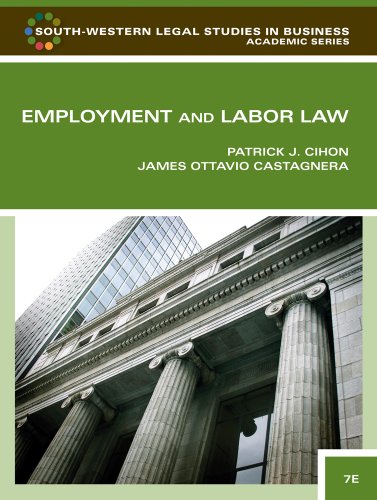Morgan was an untenured faculty member at Ivy University. In February 1995, he was informed that the
Question:
Morgan was an untenured faculty member at Ivy University. In February 1995, he was informed that the Faculty Tenure Committee recommended that he not be offered a tenured position with the university. Failure to achieve tenure requires that the faculty member seek employment elsewhere.
The university offers such faculty members a one-year contract following denial of tenure. At the expiration of the one-year contract, the faculty member’s employment is terminated.
Morgan appealed to the tenure committee for reconsideration. The committee granted him a oneyear extension for reconsideration. In February 1996, the committee denied Morgan tenure at Ivy University. The university board of trustees affirmed the committee’s decision. Morgan was informed of the trustees’ decision and offered a one-year contract on June 26, 1996.
Morgan accepted the one-year contract, which would expire on June 30, 1997. On June 1, 1997, Morgan filed charges with the EEOC alleging race and sex discrimination by Ivy University in denying him tenure. The one-year contract expired on June 30, 1997, and Morgan’s employment was terminated.
Assuming no state or local EEOC agency is involved, is Morgan’s complaint validly filed with the EEOC? What employment practice is he challenging? When did it occur? See Delaware State College v. Ricks [449 U.S. 250 (1980)].
Step by Step Answer:

Employment And Labor Law
ISBN: 9781439037270
7th Edition
Authors: Patrick J. Cihon , James Ottavio Castagnera





